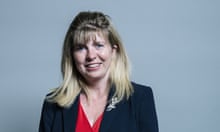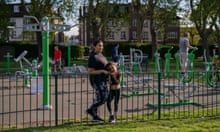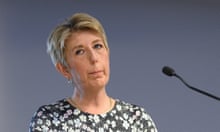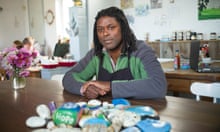Politicians have allowed xenophobia, Islamophobia and antisemitism to enter the mainstream as a result of their toxic and divisive campaigning, according to Lady Warsi.
The Conservative peer and former party co-chair told the Guardian she was deeply worried about the current political climate, claiming a surge in “respectable racism” was feeding the far right.
“I was still disgusted but more comfortable with the racism of the 70s and 80s that was overt and thuggish, than this new form of respectable xenophobia where it is done in political circles, journalism and academia,” she said.
Warsi argued that the EU referendum and London mayoralty campaigns had helped create a climate in which people feel it is acceptable to tell long-established British communities “it’s time for you to leave”.
Referring to a spike in hate crime since the 23 June EU vote, she said: “I do not hold anybody who voted for Brexit responsible for the rise in racism; I don’t hold people who believed in Brexit responsible; but I definitely hold politicians, who put out divisive xenophobic messages and posters, responsible because this created the atmosphere in which this thrived.”
She claimed the campaign had created a sense of threat by singling out certain societal groups – such as eastern Europeans, Turks, and refugees – as “others”.

Warsi’s comments come after she complained to the editor of the Sun, Tony Gallagher, about a Kelvin Mackenzie column attacking Channel 4 News for allowing the journalist Fatima Manji, a Muslim, to present a report about the truck attack in Nice.
Mackenzie likened Manji’s report, in which she was wearing a hijab, to “sticking one in the eye of the ordinary viewer”. The article was the subject of 1,400 complaints to the press regulator.
“What is the kind of Britain we are starting to create? People were saying: ‘Why should she wear a headscarf?’ What next: why should people wear a skull cap? Why should people wear a turban?” she said.
“And as women, have we really not got over the 1950s, when middle-aged white men used to tell us what we can or cannot wear? I thought we’d got beyond the point where people commented on the length of our skirt.”
Warsi said she believed that politics generally had become much more toxic. “When politicians express shock and condemn the rise of hate crime, what I ask is, take a long, hard look at yourselves first,” she said. “What is it that we are doing that is sending out the green light to people who hold racist, Islamophobic, antisemitic, xenophobic views that it is OK to say these things?”
She said that campaigns too often “pit communities against each other” and play on their fears.
Warsi called on Theresa May and other leading politicians to stamp such tactics out of future campaigning. “This concept of the enemy within and fifth columnists, which was raised by people like Ukip, has now started to creep into mainstream politics. And that is why – however much I wanted London to be governed by a Tory mayor – I didn’t think the means justified the ends,” she said, referring to Zac Goldsmith’s controversial campaign in which he accused the eventual winner, Labour’s Sadiq Khan, of sharing platforms with extremists.
Warsi said she changed her mind about campaigning on the Brexit side in the run-up to the EU referendum because of the divisive tactics used by both the Ukip leader, Nigel Farage – who has since resigned – and the Vote Leave campaign, headed by Boris Johnson and Michael Gove.
She admitted having regrets about some of her own previous political campaigns. “I am ashamed of the leaflets that I put out in the 2004-05 general election campaign when I stood in Dewsbury; I felt that those leaflets were homophobic.” The literature had questioned the Labour government’s decision to overturn a ban on the teaching of homosexuality in schools. “I was confusing this commitment to family values with a dismissal of alternative sexual lifestyles,” she said.
Warsi’s comments came as a cross-party parliamentary conference called for more responsible political leadership after the “toxic” referendum campaign. Police and faith groups have also raised concerns about a rise in hate crime and other race-fuelled incidents.
The conference was chaired by the MPs Jack Dromey, Ruth Smeeth and Tom Tugendhat, and was attended by the new culture secretary, Karen Bradley. The event is linked to the More in Common campaign that was set up by the charity Hope not Hate following the murder of the Labour MP Jo Cox.
Warsi said it was right to call on communities to play their part in creating cohesion, but added: “Every community also has a right to be protected.” She said British people, including white working-class men, were increasingly questioning whether they mattered and whether they belonged.









